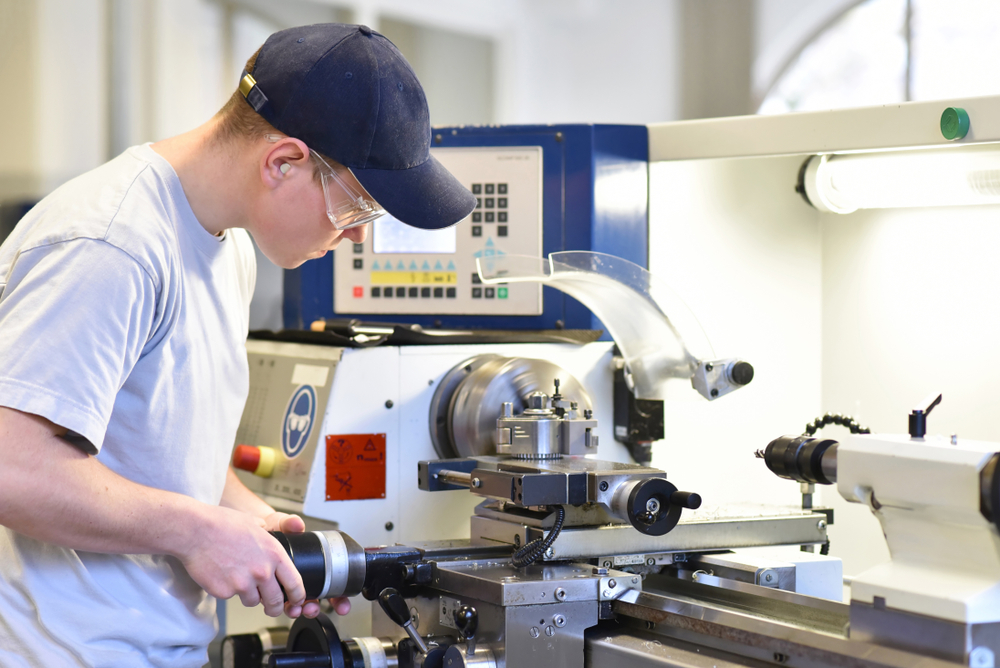
The Evolution and Impact of Automation in the Metals Industry
The metals industry, traditionally reliant on manual and labor-intensive processes, has seen a rapid shift toward automation.
In the throes of the fourth industrial revolution, we find ourselves amidst a profound transformation of industries across the board. Often known as Industry 4.0, this revolution is characterized by the digital transformation of manufacturing sectors. For the metals industry, this transformative era is aptly known as “Metals 4.0”.
Automation, one of the key drivers of this revolution, has significantly impacted the metals industry. Its evolution within the industry has resulted in enhanced productivity, significant efficiency gains, and reshaped the job market.
The Evolution of Automation in the Metals Industry
The metals industry, traditionally reliant on manual and labor-intensive processes, has seen a rapid shift toward automation. From the automation of repetitive tasks to the implementation of advanced robotics for precision tasks, the metals industry has embraced the potential of these transformative technologies.
Consider the case of Nucor, one of the largest steel producers in the United States. Nucor has integrated automation into its operations at a profound level, resulting in significant efficiency gains. Its ‘mini-mill’ approach, which relies heavily on electric arc furnaces and automated processes, has led to a leaner, more agile operation compared to traditional steel manufacturing processes.
The Impact on Productivity and Efficiency
Automation has had a profound effect on productivity and efficiency in the metals industry. Automated processes, robotics, and advanced machinery have contributed to a dramatic increase in productivity rates. The benefits of automation are clear: tasks that once took hours or even days to complete can now be done in a fraction of the time and with fewer errors.
For example, global metals company ArcelorMittal has successfully incorporated automation into its operations. The company has witnessed a significant improvement in production rates and a decrease in production errors since introducing automated processes. This has not only increased efficiency but has also reduced costs and improved overall product quality.
Job Displacement vs Job Creation
Automation’s impact on the labor market is a double-edged sword. While it’s true that automation can displace traditional jobs, especially those that are repetitive and labor-intensive, it also leads to the creation of new roles that didn’t exist before.
Jobs that require expertise in robotics, data analysis, and maintenance of automated systems are on the rise. While there is a need for upskilling and reskilling existing workers to fit these new roles, the potential for higher-value, rewarding jobs is an exciting prospect for the future of the metals industry.
Finding and retaining talent is an ongoing challenge for the metals industry. Automation can have a significant impact on this aspect in several ways.
Attracting a New Generation of Workers
Automation and the integration of advanced technologies can make the industry more attractive to a new generation of workers who are seeking innovative and technologically advanced workplaces. Many younger workers are digitally savvy and are often more inclined to work in environments where they can use their skills. By showcasing how automation is being used in the metals industry, companies can attract this new generation of workers.
Future Trends: The Continuous Impact of Automation
Looking ahead, automation will continue to shape the metals industry in new and exciting ways. Advanced robotics, artificial intelligence (AI), and the Internet of Things (IoT) are set to play increasingly prominent roles.
We can expect to see further increases in efficiency and productivity as more sophisticated forms of automation are implemented. Simultaneously, companies will need to invest in training and upskilling programs to ensure their workforce can effectively leverage these technologies.
Additionally, with the advent of “smart factories” and advanced predictive analytics, the metals industry will be better equipped to anticipate and respond to market demand, streamline supply chains, and optimize production processes.
Conclusion
The impact of automation on the metals industry is profound and far-reaching. While the journey toward comprehensive automation may be challenging, the potential rewards make it a worthwhile endeavor.
As we move further into the era of Metals 4.0, those companies that can effectively leverage automation will be best positioned to thrive. By embracing automation, companies can increase their productivity, improve their efficiency, create rewarding jobs, and ultimately ensure their long-term competitiveness in the rapidly evolving metals industry.
Want to learn how leaders can seize the opportunities that hiring for the future presents. Learn more here.
